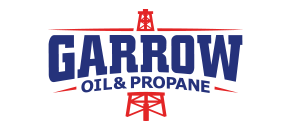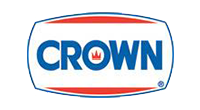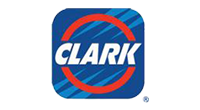Your Local Fueling Company, Keeping Families Warm & Businesses Thriving.
FAQs
Garrow Oil & Propane
Have a propane-related question? We have the answer. Check out these FAQs and give us a call today for more information!
-
I hear a hissing noise from my propane tank. What is it?
A hissing noise could be caused by the fixed liquid level gauge, also known as a bleeder valve, which is opened by the delivery person every time the tank is filled with propane. On occasion, the bleeder valve is not closed completely, whether due to driver error or debris blockage. If this is the case, simply turning the bleeder valve clockwise will close the valve and stop the flow of gas. The hissing noise could also be coming from the safety relief valve. On hot days when the sun is high overhead and a propane delivery has recently been made, the safety relief valve may open slightly, allowing excess pressure to vent. One way to remedy the situation is to cool the tank down by spraying water from a garden hose on the surface of the tank. Learn more about what could be causing hissing in your propane tank by calling us!
-
I open my LP gas cylinder valve and nothing comes out. What’s wrong?
A connection must be made between the appliance hose end and the cylinder service valve. The inside of the OPD valve is engineered to allow propane in or out only if the internal valve is actuated by being depressed. OPD-equipped cylinders will not allow gas out of the cylinder when opened. The same is true for industrial forklift cylinders. The hose end connection has an elevated brass fitting that's surrounded by acme threads. When attached to a cylinder valve and tightened, the brass fitting will push the internal valve open, allowing gas to flow out of the cylinder to the appliance. This fitting must be in place for gas to flow out of the cylinder. Otherwise, turning the hand wheel will not produce the intended result. Call us today to learn more about propane, diesel fuel, and gas cylinders.
-
Why is my propane regulator covered in frost? Is it freezing up?
Freezing and frosting of propane regulators are quite common. Usually, they're nothing to be concerned about, provided everything is in working order and operating as it should. Frost can form on regulators connected to both propane cylinders and bulk stationary LP gas tanks. If you're in doubt about the safety of your regulator, turn off the tank service valve and contact our team. While this “freezing” of the regulator may be a symptom of a more severe problem, it’s usually a sign that outside humidity is at a level capable of producing condensation. The only difference is that the condensation forming on a regulator is frozen. Under normal operation in hot and humid climates, the external surface of a regulator will freeze and appear to be frozen or frosted. The rate at which propane is being withdrawn from the tank or cylinder will also cause the container to display a visible frost line, which indicates the liquid level of the propane within the tank.
-
Can I lock in my propane price when I order a delivery?
The only way to lock in a price is through our price protection program. Our customers who choose a variable “market” price plan cannot lock their price. These customers are charged a price based on the market price for propane on the day of delivery. In falling markets, our variable-priced customers can potentially benefit from a lower price on the day of propane delivery.
-
I just received a propane delivery. When is my payment due?
Unless you are on a budget plan or have pre-paid in advance, you have 30 days from the date of propane delivery to make a payment. If we haven’t received payment in 30 days, we’ll send you a friendly reminder. If at any time you are having trouble making a payment, please call or email us and we can arrange for a payment plan. After 30 days, 1.5% interest is charged per month.
-
I have a credit on my account for my fuel. Why were the charges from my last service call deducted from this credit?
Charges resulting from interest, fuel surcharges, tax, service calls, labor, etc. are billed to the same account as your residential propane deliveries so they are deducted from any credit on your account. However, your fuel credit will be replenished when payment is made for these charges. If you have questions about how payment for diesel fuel works, don't hesitate to get in contact with us.
-
Can I paint my propane tank to match my house?
If the tank is leased by our team, you cannot paint the tank to match the house. Our Garrow tanks come painted a silver/gray color with a tan hood. If your Garrow tank is starting to rust or the paint is chipping, please contact our office and we will put you on the paint list. Every summer we repaint the tanks on the list for that year. If you own the tank, you can paint it if you’d like, but not any color you choose. All too often propane customers take it upon themselves to paint their tank a color that complements the colors of their home or landscaping. This presents a safety problem if the tank color is dark or non-reflective. Dark colors absorb heat, while lighter colors reflect it. Propane tanks need to reflect heat, not absorb it. Because propane exists as both a liquid and a gas within the tank, the absorption of heat due to a non-reflective color creates the possibility of a high-pressure situation that may cause the safety relief valve to open. Call us if you have any questions about painting your propane tank.
-
What is a tank rental charge?
When you rent a tank, Garrow Propane & Oil assumes responsibility for equipment upkeep and maintenance of your propane system, including painting the tank and replacing first-stage regulators. Those that use the minimum amount of fuel required annually will not be invoiced for tank rental. Learn more about the diesel fuel and propane services we offer when you contact our team.
-
How much can my propane tank hold?
Propane tanks are most commonly referred to by their water capacity volume. These tanks are normally filled to 80% of their water capacity. Since propane is stored in a liquid state under pressure, it needs room to expand into a vapor. This extra “room” that is in the tank allows for that expansion. Depending on the ambient temperature outside, propane may expand more or less. Learn more about your propane tank by giving Garrow Oil & Propane a call today.
-
What happens if I run out of propane?
According to the National Propane Gas Association, propane is used in 50 million American homes. If you're one of these homeowners, you may be unsure of what it looks like when you run out of propane. When you run out of propane, you will begin to smell gas. This is the mercaptan that is sitting on the bottom of the tank that is added to make propane have an odor. There is no harm in this. Call us and we'll provide you with more propane.
Business Hours
- Mon - Fri
- -
- Sat - Sun
- Closed
Walk-Ins Welcome at the Appleton Location After-Hours Emergency Service Available










Share On: